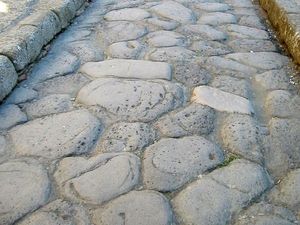Ancient Romans invented many amazing things still in use today. Some have never changed between then and now. When society becomes more advanced, some of those inventions may no longer be of use. There are a few, however, that will never never go out of style. We will likely be using ancient Roman inventions centuries from now, after we have moved on to other planets.
The calendar
Calendars Through the Ages shows a history of early calendars, including the ancient Roman calendar. The calendar we currently use is called the Gregorian Calendar, which is nearly identical to the Julian Calendar invented by the Romans in 45 B.C.E. It was the same truly solar calendar we use today, minus 10 minutes 48 seconds. The only difference was that their representation of the calendar looked much different than the calendar with which we are familiar.
Even after humans have traveled to other planets, we will always need a way to track time. Any new calendars created for shorter or longer days, months, and years on other planets will likely be based on the solar cycles. Such a calendar would be based on the same concept as our current calendar, invented in ancient Rome.
Abbreviations & symbols
Symbols such as “&” and “@,” and abbreviations such as “etc,” are only becoming more popular as texting becomes more popular. What many people may not know, is that many of these symbols and abbreviations were invented as part of the Latin language, in ancient Rome. M. J. Driscoll details just a few of these symbols and abbreviations, with a more in-depth history of each.
The more we use machines to communicate, the more we will want to abbreviate. Even after computers become advanced enough to understand and translate the spoken word, we will continue to require written words for clarity.
“Innocent until proven guilty”
The idea that a person is “innocent until proven guilty” is one of the most well-known concepts in law. What you may not know, is that it was an invention of ancient Rome. HistoryTeacher.net lists a few of the laws that were part of The Twelve Tables in ancient Rome, including the idea of “innocent until proven guilty.” These laws were inscribed on twelve bronze tables, and were the basis of many future laws.
Today, as a highly connected society, we unfortunately have the fairly new idea of “the court of public opinion.” Anyone who has been wrongly accused of a crime can feel at least partially at ease knowing that he or she will not be declared guilty unless it can be proven. Too bad that may not hold true in the court of public opinion. Either way, it is unlikely that the concept will ever change in our laws.
Modern plumbing
Basic plumbing was invented before ancient Roman times, but ancient Rome invented modern plumbing as we know it today. ThePlumber.com details how ancient Romans were big believers in baths. They had both public and private baths. All those baths required a lot of water. Although their systems did not include the high tech filtration and disinfection we have today, they were very complex.
Even without baths, we will always want to have clean water in our homes for drinking and personal hygiene. With so many people in the world, complex plumbing systems will always be a necessity. This will always be the case, even centuries from now.
Complex road networks
Mariamilani details how Roman roads were constructed in ancient Rome. The ancient Romans invented the idea of complex road networks still in use today. In some ways, the Roman roads themselves were better than what we have today. They were sturdier, and did not require constant maintenance. The drawback is that they would be extraordinarily expensive to create in modern times. They also would not work on modern inventions, such as elevated highways.
We will always need road networks, even when we have flying cars and time-space-folding machines. People will always want to get out to explore, and see the sights. Road networks keep vehicles out of private property, and keep traffic flowing. Centuries from now, we will be traveling along road networks based on those created in ancient Rome.
